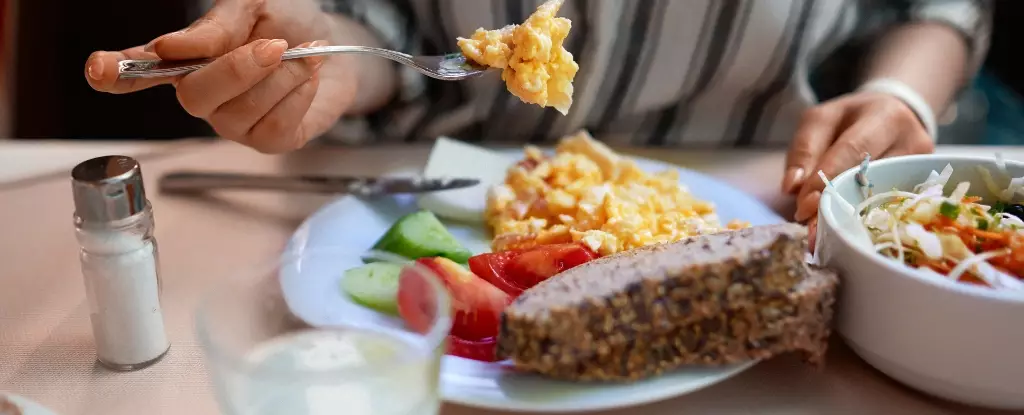In recent years, the popularity of GLP-1 agonists like Ozempic and Wegovy has captured significant attention in the realm of obesity treatment. These pharmaceutical solutions promise effective weight loss by manipulating hunger signaling in the brain. Nevertheless, surveys indicate a striking preference among individuals to pursue weight loss without the aid of medication. This trend emphasizes a fundamental desire for holistic health—one that places value on natural methods of achieving weight-related goals. Indeed, a closer look at the science reveals that specific dietary practices, along with strategic nutritional choices, can effectively emulate the mechanisms behind these drugs without the potential side effects.
Understanding GLP-1: The Body’s Satiety Hormone
GLP-1, or glucagon-like peptide-1, is a pivotal hormone in regulating appetite and food intake. Emerging research implies that while medications significantly augment GLP-1 levels, several natural approaches can increase this hormone’s availability in the body. The primary role of GLP-1 is to slow gastric emptying and promote a feeling of fullness. Hence, any practical diet that aims to encourage weight loss should strive to enhance this hormonal pathway through food choices and eating habits.
Fibre: The Unsung Hero of Weight Loss
Dietary fiber stands out as a potent nutrient capable of stimulating GLP-1 production. Found in an array of foods such as beans, whole grains, fruits, and vegetables, fiber undergoes fermentation in the gut, producing short-chain fatty acids that trigger GLP-1 release. This connection explains why high-fiber diets are strongly correlated with sustainable weight loss, independent of calorie counting. By focusing on increasing fiber intake, individuals can craft meals that naturally enhance satiety without excessive reliance on restrictive dieting.
The Power of Fats: Monounsaturated Options
While fiber acts as a heavyweight in the weight loss arena, healthy fats—particularly monounsaturated fats found in olive oil, avocados, and nuts—also play a role in elevating GLP-1 levels. Studies have shown significant increases in GLP-1 when these fats accompany carbohydrates, suggesting that a well-balanced combination of food types can further benefit weight loss efforts. For those looking to restructure their eating patterns, incorporating monounsaturated fats could provide satisfying meals that also keep hunger at bay.
Meal Timing and Sequence: The Behavioral Dimension
Diet isn’t just about what you eat; it’s about how you eat it, too. Intriguingly, the sequence in which foods are consumed plays a crucial role in influencing GLP-1 levels. Research indicates that consuming proteins—like fish or lean meats—before carbohydrates can enhance the satiety hormone’s response compared to the reverse order. Furthermore, aligning meal times with our body’s hormonal rhythms is critical; for instance, consuming more substantial meals earlier in the day optimally manipulates GLP-1 secretion, aligning with the age-old adage of eating breakfast like royalty.
The Art of Eating: Consideration in Every Bite
Beyond meal composition and timing, even the very act of eating deserves attention. Studies suggest that eating at a leisurely pace can promote a more significant release of GLP-1, enhancing feelings of fullness. Additionally, the practice of chewing—while seemingly trivial—has an undeniable impact. For example, chewing whole foods may stimulate GLP-1 production more effectively compared to consuming pureed or processed versions, highlighting the importance of mindful eating practices.
Comparative Power: Natural Strategies vs. Medications
While it’s apparent that certain dietary strategies can boost GLP-1 levels, they may not match the monumental increase provided by pharmaceutical options. Research indicates that a Mediterranean diet, which is rich in fiber and healthy fats, can achieve GLP-1 levels far lower than those induced by medications. Nevertheless, this approach not only facilitates weight management but also significantly lowers the risk of cardiovascular diseases—an advantage that medications often fail to provide.
Nature’s Recipe: Implementing Effective Dietary Changes
For those eager to cultivate a robust weight loss strategy rooted in natural practices, here are essential recommendations:
– Prioritize breakfast as your most significant meal.
– Incorporate at least one fiber-rich food into every meal.
– Make olive oil a staple in your cooking and dressings.
– Be strategic about food sequencing—favor proteins and vegetables before indulging in carbs.
– Chew thoughtfully and eat slowly to enhance satiety.
By embracing these evidence-based strategies, individuals can foster not just weight loss but a deeper connection to their health—without the reliance on medication. The pursuit of natural methods can be empowering, allowing individuals to reclaim control over their wellness journey while simultaneously promoting lasting health benefits.


Leave a Reply